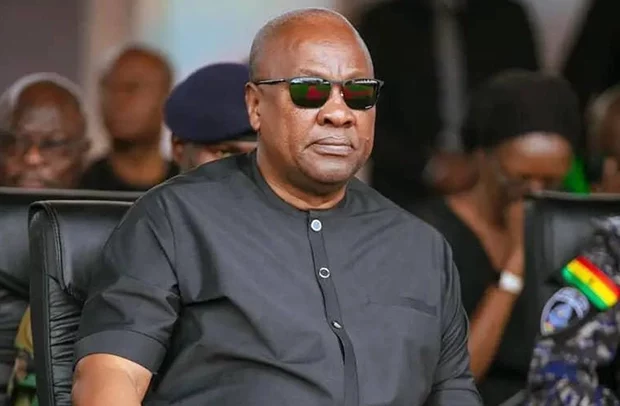President John Mahama
Ghana has been blacklisted from accessing United States foreign assistance for the 2026 fiscal year, following its classification as ineligible by the Millennium Challenge Corporation (MCC).
The decision, contained in a report submitted to the U.S. Congress under Section 608(a) of the Millennium Challenge Act of 2003, cites Ghana’s ongoing debt default as the basis for the restriction.
According to the report, Ghana has been declared ineligible pursuant to Section 7012 of the Fiscal Year 2025 State, Foreign Operations, and Related Programs Appropriations Act, which bars aid to countries in debt default until they have concluded restructuring agreements with creditors.
This places Ghana alongside 17 other countries, including Burkina Faso, Guinea, Mali, Niger, Zimbabwe, and Venezuela, that are prohibited from receiving U.S. economic assistance for legal, governance, or debt-related reasons.
“Countries identified above as candidate countries, as well as countries that would be considered candidate countries but for the applicability of legal provisions that prohibit U.S. economic assistance, may be the subject of future statutory restrictions or determinations, or changed country circumstances, that affect their legal eligibility for assistance under part I of the Foreign Assistance Act by reason of application of the Foreign Assistance Act or any other provision of law for FY 2026,” the report said.
The MCC is a U.S. government agency established to fight global poverty by promoting sustainable economic growth through “compacts” with developing nations.
These agreements provide significant grant funding, but eligibility is conditional on a country’s adherence to principles of democratic governance, economic freedom, and investment in human development.
Ghana has been a notable beneficiary in the past, securing two major compacts worth more than $860 million to support agriculture, transport, and energy reforms.
The country’s blacklisting marks a stark reversal of fortunes. In recent years, Ghana was celebrated as a model partner for the MCC, with its second compact, signed in 2014, focusing on modernising the power sector and improving electricity reliability.
The suspension of eligibility due to debt default now underscores the severity of the nation’s fiscal challenges.
Ghana entered into a full-blown economic crisis in 2022, defaulting on most of its external debt obligations.
This prompted the government to seek a $3 billion Extended Credit Facility from the International Monetary Fund (IMF) to restore macroeconomic stability.
While progress has been made in restructuring domestic debt, negotiations with international bondholders have dragged on, leaving the country technically in default.
The U.S. decision is seen by analysts as the international community’s impatience with Ghana in resolving the debt issue.
Limited Economic Impact
A civil society organisation, CUTS International, has downplayed the immediate impact of Ghana’s blacklisting by the United States, saying the economy is resilient enough to absorb the shock in the short term.
Appiah Kusi Adomako, Director of the West Africa office of CUTS International, explained that while the country will lose access to significant grant funding, government has in the past managed similar aid shortfalls by realigning expenditure and filling gaps through the national budget.
Citing the withdrawal of USAID support worth about $30 million to Ghana’s health and other sectors during the Trump administration, Mr. Adomako recalled that government had to step in to replace the funding.
“When USAID withdrew, the Finance Minister was asked to make provisions in the budget to cover the shortfall. The same approach can be adopted with the MCC. Government can cut or realign expenditures in the short term to cushion the impact,” he said.
Meanwhile, a total of 87 countries were approved as candidate countries for the fiscal year 2026, according to the report, which includes Afghanistan, Algeria, Angola, Armenia, Bangladesh, Belize, Benin, Bhutan, Bolivia, Botswana and Burundi.
Others are Cabo Verde, Cambodia, Cameroon, Central African Republic, Chad, Colombia, Comoros, Congo, Côte d’Ivoire, Democratic Republic of Congo, Djibouti, Ecuador, Egypt, El Salvador, Equatorial Guinea, Eswatini, Ethiopia, Fiji, Gabon, Gambia, Guatemala, Guinea-Bissau, Honduras, India, and Indonesia.
By Ernest Kofi Adu


